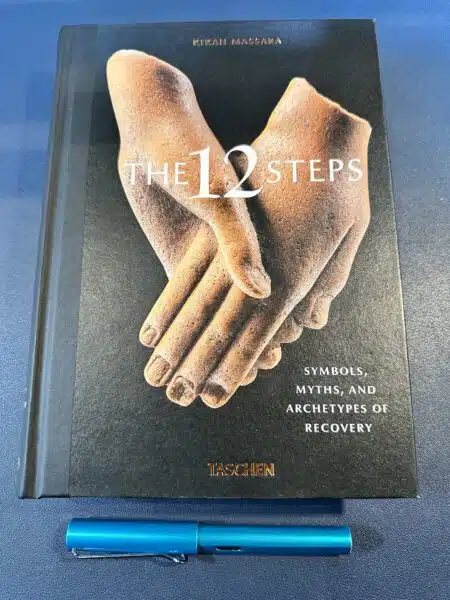
The idea that complete abstinence from mind-altering substances is necessary for recovery from addiction – the hallmark of treatments like Alcoholic Anonymous (AA) and Narcotics Anonymous – is under threat. For younger Americans dealing with addiction to opioids rather than alcohol, AA seems like their grandparents’ solution to substance abuse. Increasingly they look to drugs like cannabis, ketamine, and psychedelics to improve mood, treat withdrawal, and alleviate trauma-related emotions that drove them to use in the first place. For them, abstinence is no longer the goal of recovery, but rather stopping the feelings that led to addiction. This runs contrary to the Twelve Steps originally outlined by AA; even sobriety is being called into question as a framework for what recovery should look like.
What might this sea change mean for the Twelve Steps? Should they be discarded, an old ideology when alcohol and substances less destructive than methamphetamines and opioids were the main sources of addiction? Is it the drugs or attitudes toward addiction that have most changed? Or is uncertainty for the best courses of action a sign of the times, like the explosion of addictive substances and behaviors in which addiction is best thought of as author Kikan Massara of The 12 Steps: Symbols, Myths, and Archetypes of Recovery writes: “an ‘adaptive response’ to living in an intensely disruptive era of fragmentation, disconnection, and loss”?
Massara claims we are all burdened by the myth that has been guiding most of humanity for thousands of years — the myth of patriarchy, which largely is a myth of separation:
“Patriarchy has trumpeted values that separate, isolate, and create fear in human beings. It has spawned ideals that perpetuate competition, conflict, destruction, struggle, and scarcity. This is a tale which flies in the face of the fundamental unity at the heart of matter and all spheres of life.”
The myth Massara hopes will replace patriarchy is part of what she calls the “Great Turning,” which focuses on returning humanity to the larger web of life and emphasizes psychological wholeness and connection. For this myth, and the world it would govern, the spiritually oriented process of recovery promoted in the Twelve Steps is a way to gain the unity-focused consciousness that aligns with this emerging mythos.
Interestingly, substances like cannabis, ketamine, and psychedelics have been valued by their users because they amplify feelings of connection and end loneliness. Yet their success at reaching psychological oneness doesn’t necessarily mean the Twelve Steps and the arduous path to sobriety are no longer valuable. As Massara shows in her book, the Twelve Steps are much more than a guide for reaching sobriety. They are also steps needed for reaching psychological wholeness that supports societies aligned through connectedness rather than separation. These societies will require more psychological awareness and personal responsibility than societies governed by separateness. Unfortunately, just feeling connected might not be enough to transform society.
Massara takes her readers on a journey of exploration. She begins with a historical look at spiritual quests and the significance of symbolism and myths for growth and transformation. Her book is filled with beautiful reproductions of treasured art from around the world. These images are an integral part of her book. Massara writes, “symbols not only connect but they also mend broken connections.” They are the visual story to her written portrayal of addiction as a “reaction to the world being in a stage of transformation and lacking a unitive myth,” and symbolize the steps toward psychological wholeness and revived sense of community that for centuries have rewarded followers of spiritual quests like the Twelve Steps.
Massara shares the story of how the Twelve Steps came about and details each of the steps. The Twelve Steps are then compared with CG Jung’s individuation process. Both approaches become examples of how to live in a world trying to shift from a myth of separation to one of connection.
After reading Massara’s beautifully written book, I agree the Twelve Steps and Jung’s individuation process continue to play meaningful roles in recovery from addiction. Yet they also have the power to show us how to live with a level of self-awareness and self-responsibility that is not only transformative and enlightening, but also makes possible creating a world devoted to unity.
